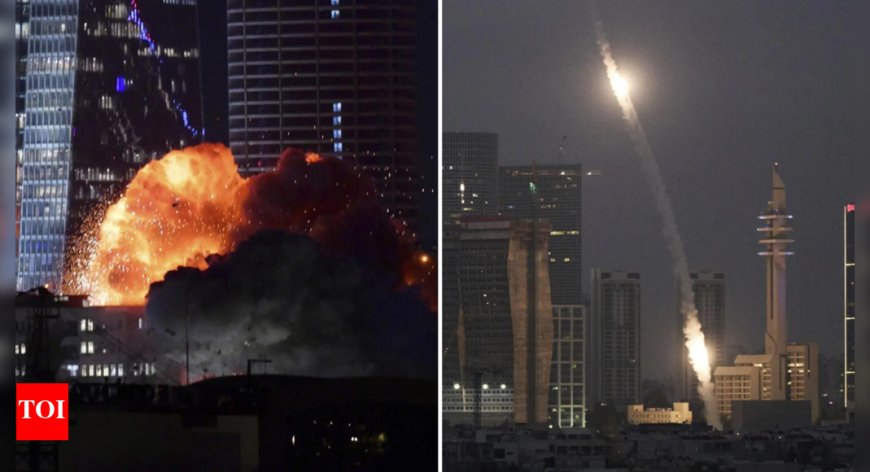'Any country that attempts to defend Israel will ...': Iran issues warning; threatens 'new targets'
Tensions escalate in the Middle East. Iran warns nations against defending Israel. This follows Israeli strikes, called Operation Rising Lion, targeting Iranian infrastructure. Iran retaliated with missile attacks on Israeli cities, including Tel Aviv. Ayatollah Ali Khamenei condemned the Israeli assault. He promised consequences and assured Iran's military readiness. The conflict raises concerns about regional stability.

'Any country that attempts to defend Israel will ...': Iran issues warning; threatens 'new targets'
Breaking News, Daily Updates & Exclusive Stories - dharmyuddh
In a significant escalation of tensions in the Middle East, Iran has issued a stern warning to nations considering support for Israel. This warning comes in the wake of Israeli military strikes, known as Operation Rising Lion, which targeted Iranian infrastructure. The situation is rapidly evolving, drawing international attention as both Iran and Israel engage in a dangerous game of military maneuvers.
Background of Rising Tensions
The conflict began when Israeli forces launched a series of attacks aimed at key Iranian installations. These operations have been part of Israel’s long-standing strategy to curb Iranian influence in the region, particularly in Syria and Iraq. In retaliation, Iran has launched missile attacks on several Israeli cities, including the bustling metropolis of Tel Aviv. Ayatollah Ali Khamenei, Iran’s supreme leader, condemned the assaults and promised significant consequences in his address to the nation.
Iran's Response: A New Era of Military Readiness
Khamenei emphasized Iran’s military readiness to defend its interests. He stated, “Any country that attempts to defend Israel will face new targets.” This stark warning reflects Iran's commitment to retaliate against perceived aggressions. The Iranian leadership has signaled that their military actions will not be limited to just defensive maneuvers but could extend to offensive operations if necessary.
International Implications
The elevation of hostilities raises concerns about broader regional stability. Various nations are now reevaluating their diplomatic stances regarding Israel and Iran. The potential for a larger conflict grows as alliances are tested and countries weigh the risks of involvement. Analysts point out that any miscalculation could lead to a regional war, involving multiple nations with vested interests in the outcome of this conflict.
Moreover, the United States has reiterated its support for Israel, complicating the situation further. With its military presence in the region, Washington's involvement or lack thereof could have significant repercussions for both Iran and Israel. Global leaders are calling for restraint, urging both parties to reconsider their military engagements to avoid reaching a point of no return.
Conclusion: A Tenuous Balance of Power
The recent tensions in the Middle East underscore the delicate balance of power that exists in the region. As Iran continues to threaten retaliation against those who support Israel, the stakes become higher. The world watches closely, with the hope that diplomacy will prevail over warfare. Navigating this intricate geopolitical landscape will require wisdom and patience from all parties involved to ensure that further escalation is avoided.
For more updates, visit dharmyuddh.







